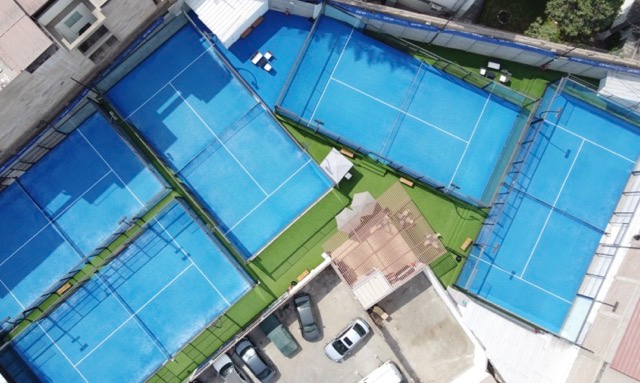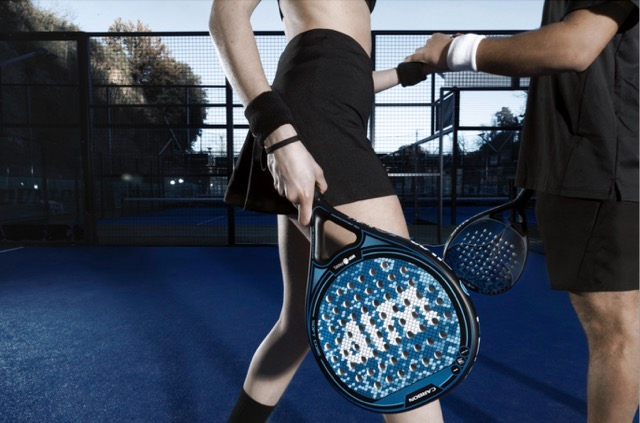You’d be forgiven for thinking that “brat” was the official word of 2025 (well, technically, it is if you consider Collins Dictionary to be the authority on the matter). However, to you, dear reader, I offer up an alternative…
In my mind, there can be no word that more accurately sums up the zeitgeist of the past 12 months than “Padel”. Stemming from 1960s Mexico, Padel (pronounced “paddle”, not “pad-del”) is widely regarded as the UK’s fastest-growing sport. Since 2020, almost 500 new courts have sprung up across the country – a figure the LTA hopes to double by the end of 2026. Whether it’s The Queen’s Club in London, the coveted Court 3 at Daylesford Farm, or a converted Toys’R’Us store in Gloucester, chances are there’s a Padel court near you.

Nicknamed tennis’ rebellious younger sibling, thanks to its relaxed dress code and emphasis on socialising, it’s adored by A-listers and the general public alike. From David Beckham to big brands like Nike and Adidas, everybody’s rushing to get in on the action.
It is this emphasis on community and socialising that I believe gives Padel its superpower appeal. Designed to be played as doubles, it naturally encourages teamwork and connection. The court is also a relatively small size (about a third of a tennis court’s size), giving it a more intimate feel. Equally critical to its general pizazz is its simplicity. The rules are easy to learn, and it isn’t as technically demanding compared to tennis.
All this makes the Padel court an inherently great place to network, meet new people or take your colleagues for a post-work social. And because it’s so addictive, you’re more or less guaranteed that follow-up meeting…
Of course, Padel’s growing popularity isn’t lost on employers and HR professionals. At Westfield Health, we’re seeing a lot of interest among corporate clients in having Padel as part of a broader workplace wellbeing offering. Until now, employers might have provided free or subsidised gym memberships or access to yoga classes. But with the rise of Padel, all of this is changing.
Then, there are companies that are taking it one step further and installing Padel courts on-site. While this isn’t currently as common in the UK (we have several clients in Europe who offer on-site Padel courts), we anticipate that this, together with MUGA (multi-use games area) spaces, will become popular options among bigger employers who own their premises.

Like all team sports, Padel is fundamentally a great way to relax and unwind and, in some cases, let off some steam. Playing with colleagues provides a unique opportunity to strengthen interpersonal relationships. A 2017 study from Loughborough University found that participating in team sport at work significantly improved physical fitness, communication, and social bonds among employees, with participants reporting enhanced workplace relationships and productivity.
The evolution of Padel as a place for employers to encourage their employees to go is not just about staying on trend; it’s about creating environments that promote health, communication, and meaningful connections. And, with the A-lister following, you never know who you might end up rubbing shoulders with.
By Jon Booker, corporate fitness expert at international wellbeing provider Westfield Health





